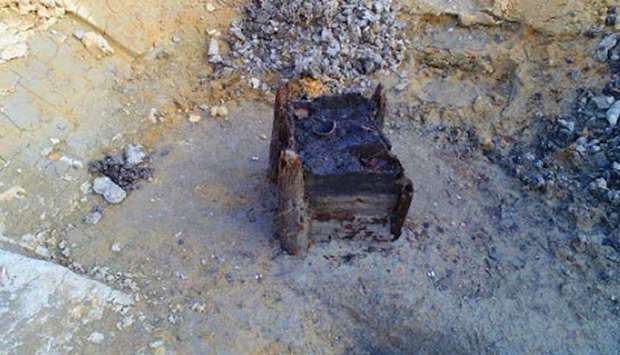An ancient wooden water well in the Czech Republic has been dated to 5,256-55 BC, making it the oldest, best conserved construction of its kind worldwide, researchers said on Wednesday.
It was possible to determine the time of construction based on the rings of the trees used in the structure, according to an article published in the Journal of Archaeological Science.
The researchers say the construction illustrates that human ancestors possessed an ‘advanced technical know-how,’ linking oak timbers to grooved corner poles.
Of course, there are simple dugout constructions which are significantly older, co-author Willy Tegel from Germany said on Wednesday. But the most recently discovered well is considered the oldest conserved wooden construction of its type.
Czech archaeologists had excavated the wooden well in 2018 on a construction site for a new highway close to the town of Ostrov, in the west of the Czech Republic.
Only six years previously, archaeologists had discovered four similar wells close to the city of Leipzig in Germany, some 160 kilometres away.
Tegel, who participated in both projects, said that the German wells are some 50 years younger than their Czech counterpart.
The discoveries mark the beginning the time when the first humans began to settle permanently in central Europe and started to farm the land.

